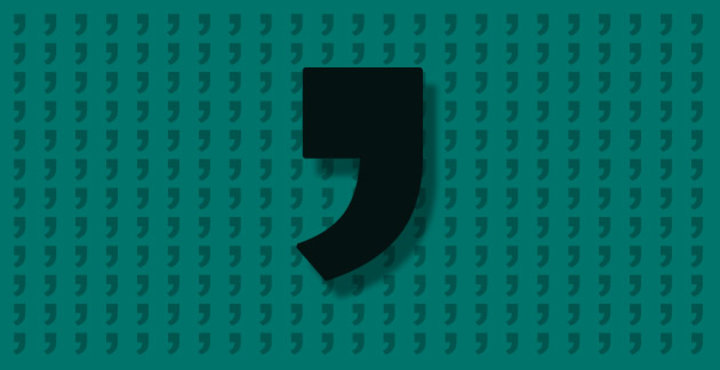
The Wandering Only
In this article, we discuss what we call the wandering or misplaced "only," which, although common and usually understood in everyday casual speech, is often confusing and has no place in formal or academic writing.
What is a Comma?
The comma is the most important punctuation mark for ensuring clarity in a sentence, but it is often incorrectly used. Follow our helpful comma rules to ensure you are using commas correctly.
Using Commas
In our earlier article we learned that commas remove ambiguity and ensure that the reader understands the meaning the author wants to convey. Let's continue looking at some additional grammatical constructions that call for comma usage.
What is a Thesis?
Making the decision to pursue a PhD degree is a significant commitment. Even if undertaken on a full-time basis, you will be committing several years of your life to a process with no certain outcome. Our editors explain what a thesis is and if it's right for you.
MLA Formatting and MLA Style: An Introduction
Your instructor has asked you to format your term paper using Modern Language Association (MLA) style. You feel confident enough to gather your thoughts in order to produce the paper, but you have never heard of MLA style—do you panic or do you research MLA style and MLA formatting?
Understanding Punctuation
Words are words and those annoying little punctuation marks can't be that important...can they? Scribendi's editors offer solutions to common punctuation errors.
How to Write a Great Thesis Statement
Movie buffs and bookworms can tell a bestseller from a dud within the first few moments. The same is true of any thesis statement you write.
How to Format a Resume
Following our previous look at resume writing, we now look at how to format a resume.







